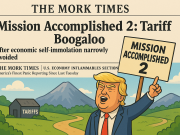In the marbled hallways of government buildings and the quiet corridors of public institutions, there exists a powerful dynamic that often dictates the ebb and flow of policies, promotions, and pathways to progress. These are the unseen networks—informal yet influential webs of relationships that can determine the fate of public sector initiatives and professionals alike. But what happens when the unseen becomes the cornerstone of advancement and decision-making in the public sector? How do these networks shape public policy and careers, and what does that mean for transparency, equality, and public trust?
The role of informal networking in the public sector cannot be understated. It is at these informal gatherings—be it a post-conference cocktail hour or a round of golf on a Sunday afternoon—that relationships are forged and ideas are shared outside the constraints of formal hierarchy. These interactions can lead to the synthesis of innovative solutions to complex problems facing our governments. Yet, there is a thin line between the healthy exchange of ideas and the cultivation of echo chambers where only the privileged few can influence outcomes.
Informal networks can significantly facilitate progress by fostering connections that might otherwise remain untapped. The sharing of tacit knowledge and experience amongst seasoned professionals can accelerate policy development and create opportunities for mentorship. However, this very dynamic can also hinder progress when it morphs into an exclusionary ‘who you know’ culture. In such environments, merit-based achievements may be overshadowed by personal allegiances, leading to disenchantment and a lack of diversity in thought and leadership.
The impact of these unseen networks on transparency and equality is profound. Decisions made behind closed doors rarely undergo the scrutiny necessary to ensure fairness and broad representation. This opacity can lead to distrust among the public and within the ranks of government employees who may feel sidelined or undervalued.
Navigating this landscape requires a delicate balance. As experienced employee advocates and representatives, it is essential to understand the power of networks while advocating for merit-based recognition and opportunities. For professionals in the public sector, building genuine, professional relationships is a crucial skill. However, maintaining integrity is paramount, and there should be a conscious effort to keep these networks open, diverse, and inclusive.
To do this, here are some recommendations:
– Seek mentorship and networking opportunities across a wide spectrum of roles and levels, ensuring you tap into diverse perspectives.
– Engage in professional associations and forums that focus on policy discussions and career development, which can serve as neutral grounds for networking.
– Advocate for transparency in decision-making processes within your organization to minimize the reliance on informal networks for critical determinations.
– Foster a culture that values and rewards merit, creating formal channels for recognition and progression that counteract the ‘who you know’ culture.
The public sector is a steward of the public trust, and with that comes an inherent responsibility to uphold the highest standards of fairness and transparency. By understanding and ethically navigating the unseen networks within government work, professionals can contribute to a more equitable and effective public service that truly serves the common good.

















![From TAOLabs: A New, Simplified Way to Learn in the Age of Chaos [30m60h90d] From TAOLabs: A New, Simplified Way to Learn in the Age of Chaos](https://theworktimes.com/wp-content/uploads/2025/05/ChatGPT-Image-May-13-2025-01_11_22-AM-238x178.png)










